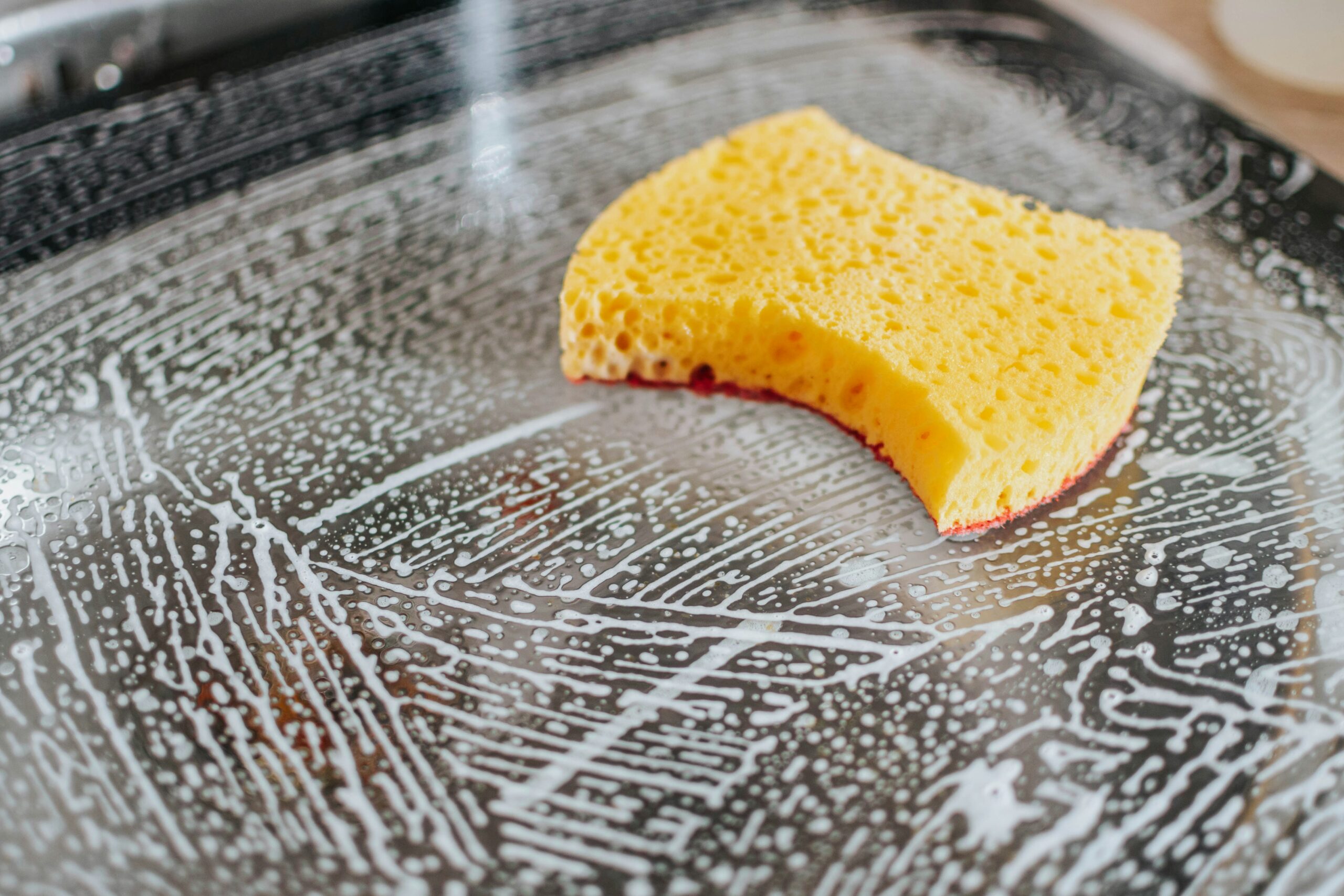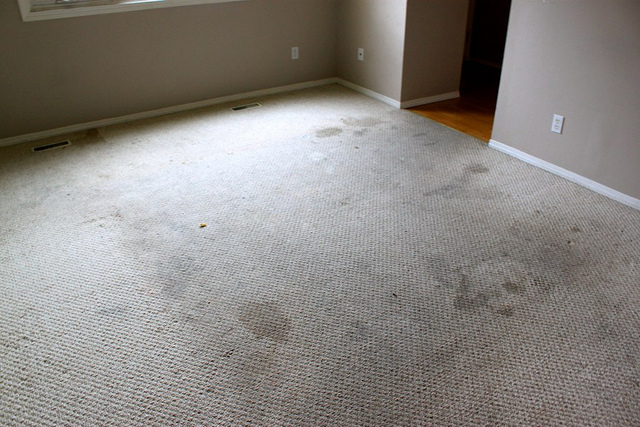SJC: Landlords May Not Deduct Cleaning Fees From Security Deposits
. Posted in News - 0 Comments
By Kimberly Rau, MassLandlords, Inc.
An August 2025 ruling from the state Supreme Judicial Court determined landlords were acting unlawfully when their lease had language requiring renters pay for professional cleaning out of their security deposit at the conclusion of the tenancy. This decision upholds what is already codified in MGL Ch.186, Section 15b, which states landlords may withhold money from a renter’s security deposit for repairs to damage, “reasonable wear and tear excluded.”

Professional cleaning fees may not be deducted from the security deposit, per the SJC. (Image: Pille Priske for Unsplash)
This is what we have long told our members, and what you should be especially careful with when deducting anything from your renter’s security deposit. To make a mistake with the security deposit can be very expensive. In Massachusetts, improper handling of a security deposit can end up costing you triple damages, plus attorneys’ fees.
Peebles v. JRK: Cleaning Not Allowed by Security Deposit Law
In Peebles v. JRK, two renters sued their landlords, the California-based company JRK Property Holdings Inc. The case got moved to federal court. The federal court asked the Massachusetts SJC to weigh in on what the law said (since, presumably, our courts would know more about our state law).
The SJC was asked to answer two questions: 1. Whether charging a tenant for painting, carpet repair or similar refurbishment at move-out violates Chapter 186, Section 15b; and 2. If lease provisions requiring professional cleaning or other repairs at the end of the tenancy violate the same law. (The case doesn’t consider whether renters can be held responsible for cleaning per se, only whether cleaning can be deducted from a security deposit.)
The plaintiffs alleged JRK “routinely” made deductions from their security deposits for reasonable wear and tear. This is explicitly forbidden under Massachusetts law. Their leases reportedly had provisions requiring professional cleaning at move-out, including listed charges for painting (charges that were apparently assessed by the coat), carpet cleaning and touch-up painting.
Then, there was a list of charges for other potential repairs and replacements, including lower-cost items like blinds, boiler pans, light bulbs and shower heads, and much more expensive items, such as toilets, carpets, exterior doors and bathtub and shower resurfacing.
According to the court decision, neither named plaintiff hired a professional cleaner at the conclusion of their tenancy. JRK reportedly deducted $115 from Brenda Peebles’ security deposit for touch-up paint and carpet cleaning, and referenced it was per the charges outlined in the lease. Plaintiff Joshua Berger had $52.40 deducted from his security deposit, for an unpaid utility bill (this could be a lawful deduction, as Section 15b allows for withholding for unpaid water bills, but the decision doesn’t get into the details).
The plaintiffs sued not just because of the deductions for cleaning and paint in Peebles’ case, but also because they alleged their landlords did not return the rest of their security deposits within 30 days.

Damage, or reasonable wear and tear? It depends on a number of factors, including how long the tenant has been in the unit. (Image: cc-BY-ND Chris Davies)
What Is “Reasonable Wear and Tear?”
MGL Chapter 186, Section 15b, does not specifically define reasonable wear and tear, noting that what the term constitutes will vary depending on the context of each different situation. Citing past cases that concerned commercial leases, the SJC concluded the following (bullet points added by us):
“The question whether damage is reasonable wear and tear thus is a fact-specific one depending on all the circumstances. These include but are not limited to:
- the nature and cause of the damage,
- the condition of the property at the start of the lease,
- the use for which a property was leased,
- the deterioration of the property to be expected as a result of its reasonable use for that purpose, and
- the length of the occupancy.”
In other words, there’s a lot that goes into determining what constitutes reasonable wear and tear, including how long the renter was in the unit. A carpet that was new at lease signing probably shouldn’t need replacement after a one-year lease, but that same carpet will likely need replacement after a tenancy that lasted a decade, through no fault of the renter.
“A dwelling's condition is expected to deteriorate over time as a tenant moves furniture in and out; cooks in the kitchen; bathes in the bathroom; relies on appliances with limited lifespans; and otherwise makes reasonable use of the property during the tenant's occupancy under the terms of the lease, including simply by walking on the floors, beside the walls, and through the doorways, day after day,” the SJC continued.
In plainer language: Nothing is designed to last forever. Even the most careful occupants will still put wear on a rug, or bump a chair against the wall and create dents. Paint fades even if no one colors on the walls. Light bulbs burn out. These are things likely to be seen as the cost of running a rental business, and typically cannot be passed on to the renters. (There are caveats for malicious damage.)
Does This Mean I Can’t Put Cleaning Fees In My Lease?
The SJC did not state cleaning fees themselves are unlawful. You can assess cleaning fees for your renters at the conclusion of their tenancy, and you can include that clause in your lease (check with your attorney if you are unsure).
However, you cannot deduct that cost from your renter’s security deposit. You can send them an invoice, or otherwise request payment, but taking money from the security deposit for anything other than reasonable wear and tear runs you afoul of the law.
You can also include fees for trash disposal and/or removal of abandoned items, but again, you may not deduct these costs from the security deposit.
Violating Security Deposit Law Is Bad Business
When it comes to compliance, we advise you to steer well clear of the line between lawful and unlawful, and there’s a good reason for it. The defendants in this case were, as the saying goes, pennywise but pound foolish. What do we mean?
First, we’ll estimate that a case like the one described above could cost you $25,000 in time, damages and attorneys’ fees.
Now, let’s say, as a landlord with many units, you have the opportunity to deduct from your renters’ security deposits 1,000 times over your tenure as a housing provider. Say you wanted to deduct “just” $25 from the deposit for a cleaning fee, or something else not allowed by statute.
For this to be worth your while financially, there would have to be less than a one-in-a-thousand chance that your renter wouldn’t sue you over it.
How did we figure this out? A little advanced math. If you have a head for numbers, here it is.
In this scenario, you have a 99.9% chance of getting $25 vs. a 0.1% chance of ending up in a court case that would cost you $25,000. We add the probability and outcome values of both together to get our actual return.
The equation: (-25,000 * .001) + (25 * 0.999), or (-25) + (24.975), which equals -0.025, or two pennies lost per transaction. The more you gamble, the more you lose. Even if you use larger numbers, one major lawsuit is going to negate most of your profit, and it’s still against the law.
(Would you like to improve your math? Brilliant.org offers a course, Use probability to make better decisions, that explains what we’ve done here. We have no affiliation with Brilliant, we just like their courses.)
Conclusion
In the SJC decision, the court determined what we already understand the law to say: Reasonable wear and tear may not be deducted from the security deposit, and even if your renters sign a lease addendum saying otherwise, it is still unlawful to do so.
Plus, as we described above, the math doesn’t even make it worth it to be unscrupulous. Follow the law and focus on running a quality, compliant business. You and your tenants will both sleep better at night.
Special thanks to Attorney Adam Sherwin for bringing our attention to this case.




